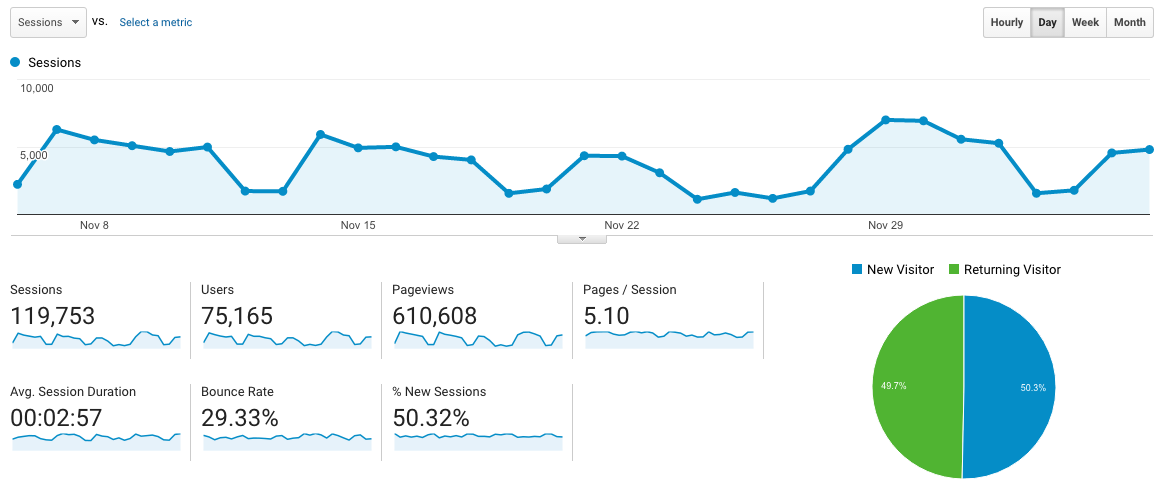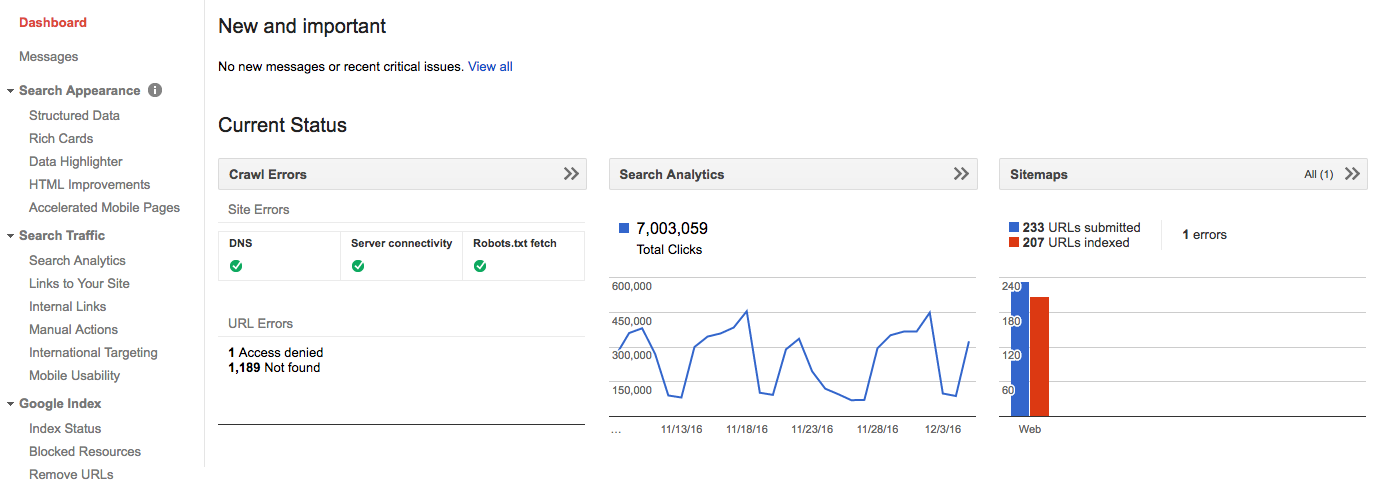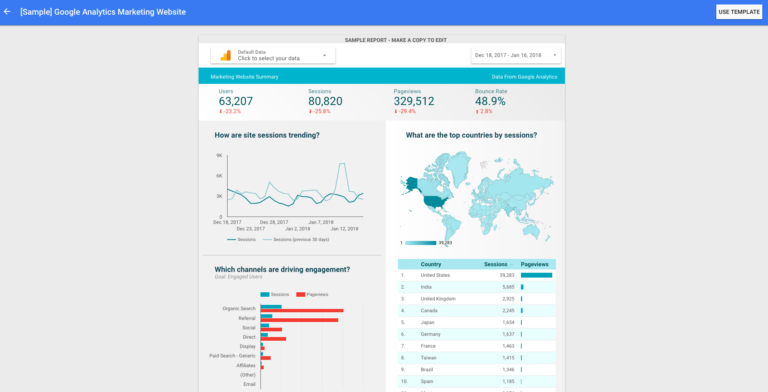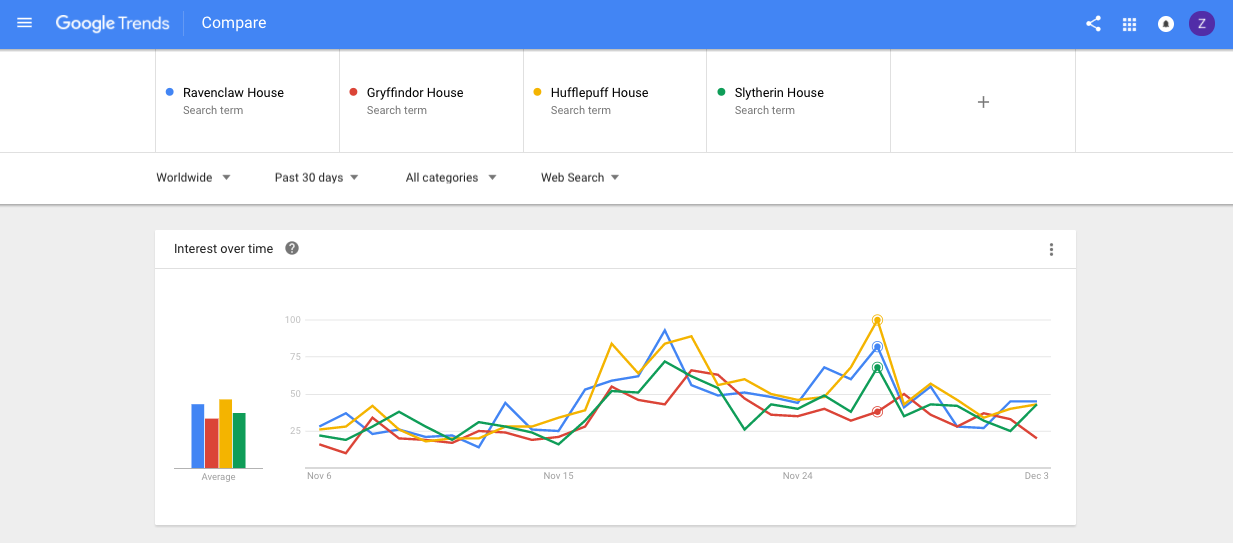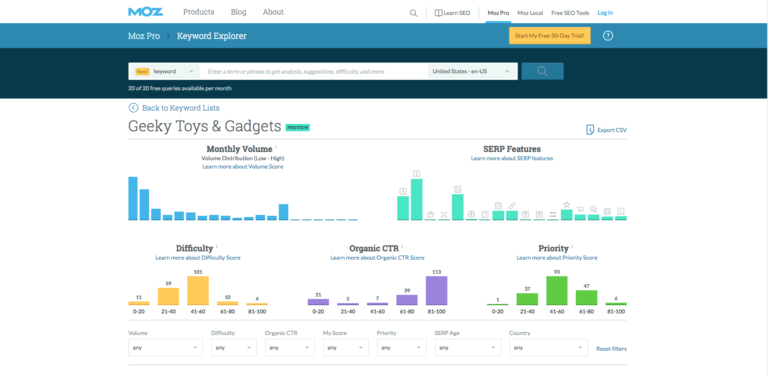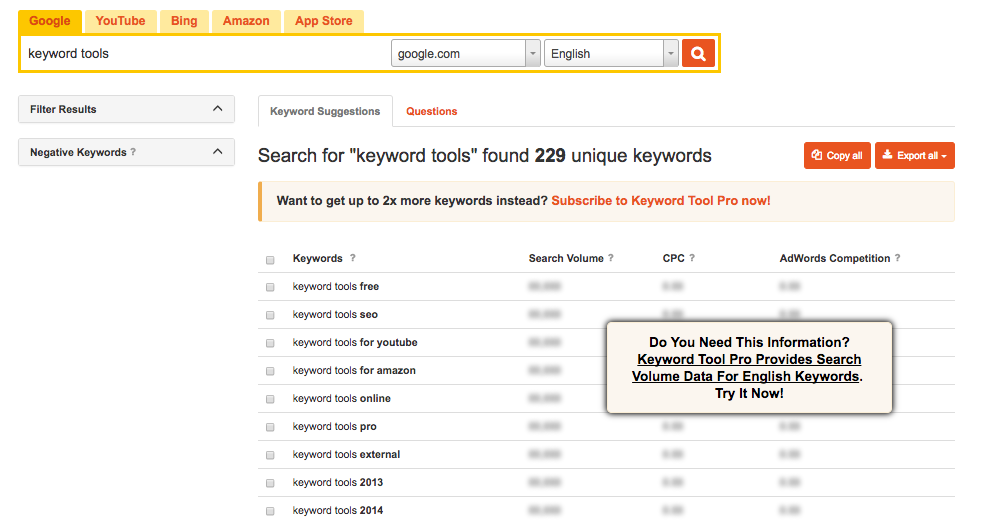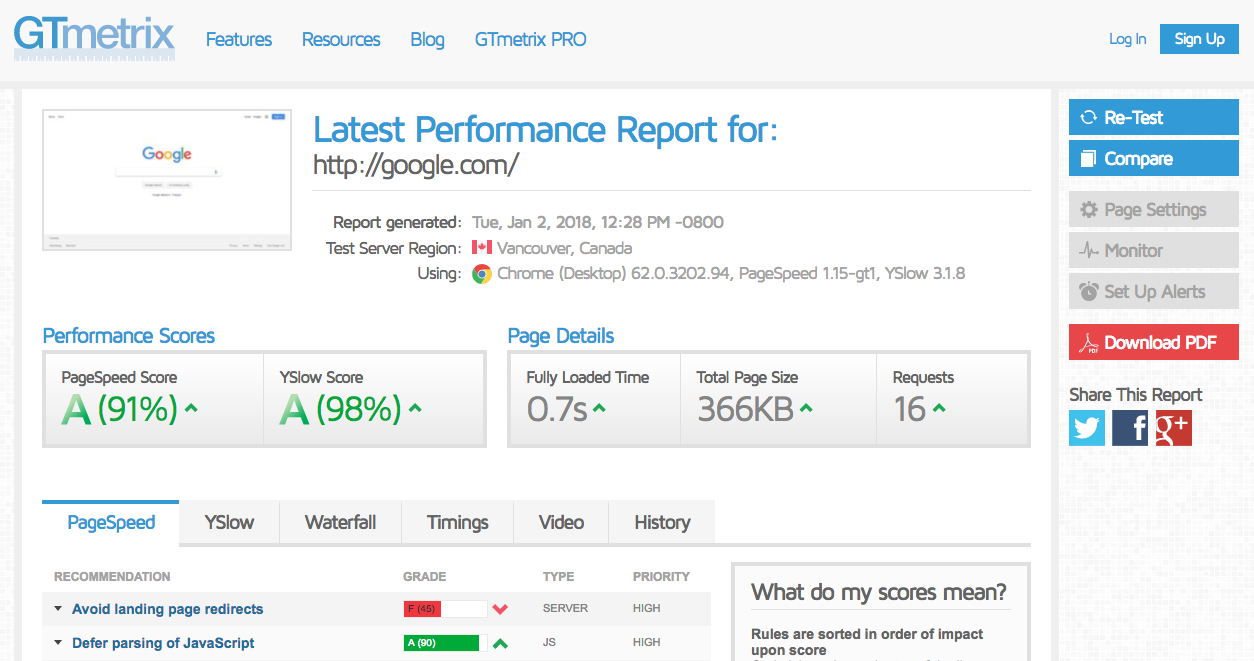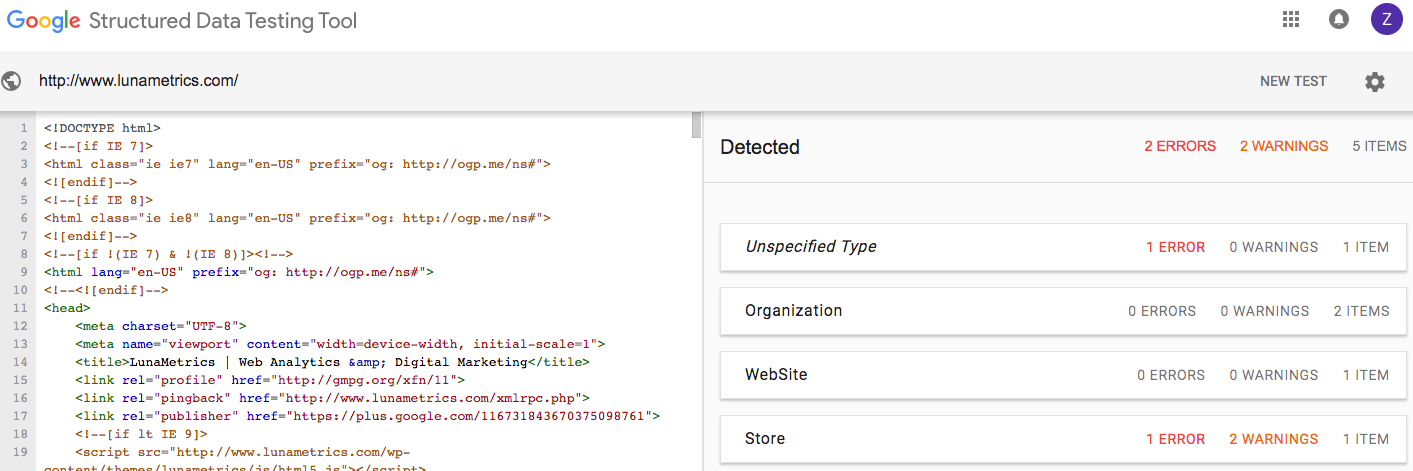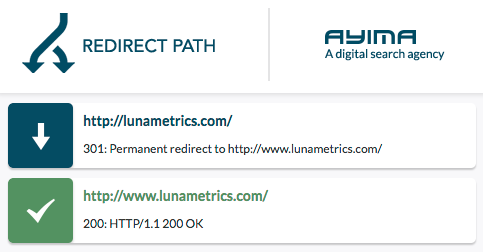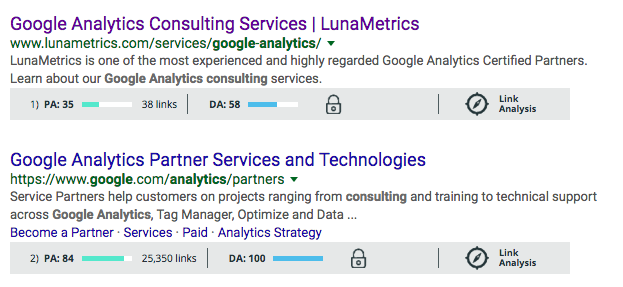Our Favorite Free SEO Tools For 2018

Search engine optimization should be an ongoing effort to improve your website’s organic search ranking and find new avenues to create content to expand your reach in meaningful ways. Free traffic? Who doesn’t want that?
Many people talk about SEO as if it is its own thing, siloed from their digital marketing strategy. Often we hear from new clients looking to improve their SEO when migrating websites or starting a new site altogether. The problem is, if you are just now starting to talk about SEO at these points, you have waited too long. If you are not continually monitoring your website, you are bound to make mistakes or let opportunities fall through the cracks.
So that is why we have compiled a list of free SEO tools and organized them into the different use cases for each of them. Despite new tools, paid and free, that come out every year, we take our time to get to a know a tool and resist the urge to promote the *newest* and *shiniest* if we haven’t been convinced of its value.
This post isn’t just for SEO professionals. We did a survey last year about what roles the readers of this post played in their organizations. Over half of our respondents indicated they’re responsible for more than just SEO for their companies, with many splitting their time between Search Engine Optimization, Paid Search, and Analytics. Does that sound like you? Knowing what to tools to use and when can keep your schedule manageable so you can tackle that list of tasks that all fall to you.
Here is a quick table of contents so you can easily hop to the different types of SEO tools:
Ongoing Monitoring
Even if you do not have a dedicated team for SEO, it is important to stay on top of things. By doing a checkup every now and then, you can see how your most important pages are ranking, if there are any increases to website errors, and how well your organic search traffic volume is trending.
Google Analytics
Chances are if you are reading this blog, you have used or at least looked at Google Analytics before, and if you haven’t, then you should get on it ASAP. This tool is a must for every website.
The most valuable SEO data is that which helps you better understand your visitors and how they interact with your site. No free tool quite delivers that data like Google Analytics and does a better job providing data that helps you understand the number that matters most – the bottom line.
Google Analytics is the best tool to understand your organic traffic. You can use it to monitor your organic traffic performance and allows you to compare to past performance. Once you notice any major differences to your traffic, you will most likely want to move on to another tool to find out what is causing the changes.
Let’s talk pros and cons. Google Analytics gives you aggregated, historical, collected data about your website, how people got there, and what people did on your site. Most other tools are going to rely on samples and estimates, and won’t give you the last part, which is ‘how did your organic traffic perform on your site?’ As far as a cons, Google Analytics used to be able to give us granular keyword data about your visitors and how they got there. But that type of detail, keywords attached to sessions, is not provided anymore inside of Google Analytics.
Here are some resources to get you started in becoming a Google Analytics master:
- First and foremost, Google’s official Analytics help section
- Google’s Analytics Academy is a great place to start if you’re new to all of this
- The Google Analytics Syllabus: How to Learn for Free
Google Search Console
Google Search Console is a tool that helps you visualize how your site may appear in search and teaches you how to influence different appearance elements. This tool allows you to pull data on your top search queries, pages, countries, devices, and more over the last 90 days. It also can inform you of different errors that occur from website crawls and suggests different html improvements.
The best part is that this is just scratching the surface of all the great things that Search Console can do, and here is an official help guide to get you started.
Google Search Console data is also available inside of the Google Analytics interface, but don’t expect this to magically fix the problem of connecting keywords to users. We can get general information, but we’re still not able to see which keywords led to the conversions.
Bing Webmaster Tools (BWT)
Often the overlooked brother of Google Search Console, Bing Webmaster Tools is a great way to keep tabs on how your site is working on Bing, which houses more than 20% of the Internet’s search traffic. It also offers benefits beyond Bing by providing insights into crawling, indexation, on-page keyword optimization, and other elements that can impact your performance in Google.
SEMRush
Have specific keywords that you want to keep close tabs on? SEMRush has a Position Tracking tool on their free interface, which allows you to track your organic position for up to 10 keywords and allows you to compare these keywords against your competitors. For more ways to use the free version of SEMrush, check out their article here.
Google Data Studio
This new, free reporting tool from Google, allows you to create and share amazing reports. One of the most beneficial things about Data Studio is that you can pull data from many different sources, making it a one-stop-shop for all your SEO reporting needs.
Here are some resources to get you started with Data Studio:
- A Free Google Analytics reporting template for Data Studio
- More tips from the team on using Data Studio
On-page Optimization
The objective of on-page optimization is to select phrases that anticipate the questions and needs of your target audience. Then, incorporate those phrases into your website in a manner that indicates to search engines and users the relevance and importance of those terms on the page.
Screaming Frog’s SEO Spider Tool
The SEO Spider Tool is an awesome website crawler. With it, you can get critical data on every URL. Download it and take it on a spin. You can use the Spider Tool to crawl up to 500 pages with the free version. It will let you know things like which pages have duplicate title tags and where you are missing important tags that will help indicate to crawl bots the content of your page.
Once you see all of the data, you will have questions, and that’s why have some resources ready for you:
- Official Screaming Frog User Guide
- 10 Features in the SEO Spider You Should Really Know
- Screaming Frog Explained: Overview Tab Definitions
We’ve also put together a spreadsheet that can take a Screaming Frog export and visualize the results.
Google Trends
Correctly predicting the future moves of your opponent in chess is essential for victory. The same can be said for marketers in their industry. Knowing where your market is heading gives marketers a huge advantage. Here, Google Trends can lend you a helping hand.
Google Trends shows changes in search volume for different topics, search terms, and entities. Mastering this tool can keep your content current and one step ahead of the competition. For search marketing, it just makes good sense to analyze changes in search query behavior. Even everyday bloggers can improve their results by understanding which topics are trending.
Google Keyword Planner
Google Keyword Planner is the creme de la creme of keyword research tools. Simply give it a seed word, and keyword suggestions will start pouring in, along with estimates of average monthly searches. The tool provides many synonyms or similar searches to the seed keywords you provide.
Moz Keyword Explorer
Moz is a suite of user-friendly inbound marketing tools. You’ll be hearing more about this tool throughout the article, because you can do a lot with this free SEO tool.
Keyword Explorer gives you insight into the estimated SEO opportunities for different keywords. This tool differs from the Keyword Planner because it will help you prioritize your keywords. It uses a priority metric which tries to calculate the opportunity cost of each keyword through its monthly search volume and the strength of competition for that keyword.
Keywordtool.io
This freemium tool is great if you want something that is quick and simple to use to obtain a ton of keyword ideas. A unique aspect to this tool is that you can utilize it for Google, YouTube, Bing, Amazon, and the App Store keywords. Keywordtool.io is especially useful for long-tail keywords that won’t show up in the Google Keyword Planner, because of the low search volume.
Another great feature with this tool, is that you can filter for search queries that come in the form of questions to help you come up with new content ideas!
Another very similar tool is Ubersuggest, which is another fan favorite here in the office.
Wayback Machine
We all had our awkward phases that you want to forget ever existed. The Wayback Machine lets you relive those moments for your website; the tool is the most complete historical archive of the internet. It allows you to see what a website used to look like. So, if a page begins to drop in its organic ranking over the course of 6 months, you can use this tool to see the old content that used to be on the page!
Fun fact: last year I made a Back to the Future joke when I wrote about the Wayback Machine. As one reader graciously pointed out, the Wayback Machine is a reference to Peabody’s Improbable History, a reoccurring segment to the Adventures of Rocky and Bullwinkle and Friends show. Which, oddly enough, Back to the Future also pays tribute to with the characters Otis Peabody and his son Sherman. It all comes full circle.
Google & Bing Search Engines
As obvious as it may seems, it would be wrong not to include them. Google and Bing search engines themselves are very useful SEO tools. Mastery of search engine functionality is part of mastering SEO. With some search magic, you can examine duplicate content, find content scrapers, check keyword rankings, analyze SERP listings, and more!
Here are some helpful guides to get you started:
- Search Operators | Google
- Advanced Search Options | Bing
- 25 Killer Combos for Googles Site Operator | Moz
Technical Auditing
Here are the tools that are going to help you when you are trying to figure out what behind-the-scenes aspects to your site are not working. Even if your site used to be running well, little things can happen over time that can effect your SEO performance. It is a good idea to check up on the technical side of your website every couple months, even if there are no noticeable changes in your organic traffic. It is always better to catch and fix your issues before they become a thorn in your side.
Screaming Frog’s Spider Tool
Yes, you have seen this tool earlier in the list. Stop giving me the side-eye, Oprah!
Not only is Screaming Frog’s Spider Tool a great tool for finding issues with your on-page content, it is great for getting a list of technical issues as well! It can help identify links with 404 errors or long redirect chains, find URLs that have been blocked by your robots.txt file, as well as help you generate an XML sitemap. The best part is that you can export a list of these and hand them over to a developer and let them deal with it! Sorry to all developers who are reading this.
GTMetrix
Managing how quick your page load speeds are can majorly impact SEO, as well as UX. GTMetrix is a tool to examine the load speed of a page and diagnose opportunities for improvement, so you know how you can further polish your website. You can even compare the speed performance against competitors!
Many other page-speed tools exist, but GTMetrix is an office favorite, because of its balance between being thorough and user-friendly. Other tools that you might find helpful: Pingdom and Google PageSpeed Insights.
Builtwith
Builtwith does about what you might expect it to. It is a website profiler tool that tells you what technology was used to create the site. You can find out which CMS the site was Builtwith (get it?), what analytics have been implemented on the site, and much more! It is a great tool for those of you who are doing SEO client work. They also have a Chrome Extension for those who prefer quick checks.
Structured Data Testing Tool (SDTT)
Commence x-ray vision. This next tool from Google is a user-friendly way to examine on-page schema code, as well as test schema markups. All you need to do is supply the markup or the website URL, and get going!
Redirect Path
Redirect Path is a free Google Chrome extension that helps you discover HTTP header and redirect errors, so that you can spend more time fixing the problems, rather than looking for them. This little plugin is most convenient for when you’re looking into just a few pages. If you need to look at more, I would suggest using Screaming Frog’s Spider tool.
Google & Bing Search Engines
The quickest way to find out if you are having indexing issues is by utilizing the site search function of Google or Bing. By searching “site:bounteous.com seo tools” you can quickly make sure that our domain has content indexed for SEO tools, even if it is not on the first page of results.
Authority and Link Building
Every website is has a hidden authority element that is used for determining how trustworthy and reputable a domain is. Moz has created a ranking score called Domain Authority which tries to predict how well a site will rank on search engine results pages. Authority generally improves by increasing the number of links to your website from other reputable sources, as well as having a proper internal linking structure.
Moz Open Site Explorer (OSE) & MozBar
Moz Open Site Explorer is a backlink analysis tool with helpful metrics approximating link equity. You can easily use this tool to compare your Domain Authority to your competitors’ and find the number of external links to your website.
MozBar is a browser toolbar that lets you quickly get at Moz’s key features for the page you’re on. The SERP Overlay (the image above) is part of the Mozbar and shows Open Site Explorer metrics on individual search results.
Google & Bing Search Engines
Again, Google and Bing search engines are useful for all things SEO. In terms of link building, they useful for scouting out new outreach and link prospects. A word of caution however, the road ahead is a difficult one that will require time, patience, and relationship building.
Here is an article to help get you started: 10000 Search Engine Queries for your Link Building Campaign.
Xenu’s Link Sleuth
As one of the new tools for 2018, it is odd that this tool is as old as it is. The one catch is that it is so old that it doesn’t support Mac operating systems.
Xenu is a simple internal link checking tool that helps you find broken links on your website. This is important because you want to make sure that the page authority of one page is able to spread to the other related pages. Moz has a great article on other ways to utilize this tool.
Honorable Mentions
Of course these are not the only tools we use; there are a plethora of options to use to improve your SEO. Tools work differently from person to person, so it’s best to find what works for you. Here are some other tools to look into:
- CopyScape let’s you enter a URL and learn if there is duplicate content elsewhere on the web.
- Firebug is a Firefox extension for web dev and technical SEO to help you inspect elements of code, code mockups live into the browser, and more.
- Google Alerts and Talkwalker help you monitor the web for new mentions of your brand or highly desired keywords.
If you want some nice Google Chrome extensions, check out my coworker’s post that focuses on extensions and how to use them effectively.
Paid SEO Tools
If you have the money and the time, there are some great SEO tools that are worth their $$$.
- Moz Pro is a multifaceted SEO tool suite full of useful tools that are not included in their free arsenal. Additionally, you can get way more searches and insights than in the free versions of the tools.
- The paid version of Screaming Frog allows you to crawl an unlimited number of webpages, which allows you to just plug in your website domain and let the tool crawl your entire site! It also has the ability to integrate Search Console and Google Analytics.
- SpyFu allows you to see what your competitor best keywords are and which ones they are bidding on. It is a great tool to understand where your competitors are coming up in the search engines.
- Supermetrics is a tool that allows you to integrate a bunch of your marketing data into one place. If you do a lot of reporting, this one is a must! A bonus is that it has integration options with Data Studio that makes reporting so much easier.
Got Another Free SEO Tool To Share?
If you have a FREE SEO tool that does something different or better than what I’ve listed, please let us know in a detailed comment below! We’d love to hear how you use the tool and how it could help others with similar challenges.
